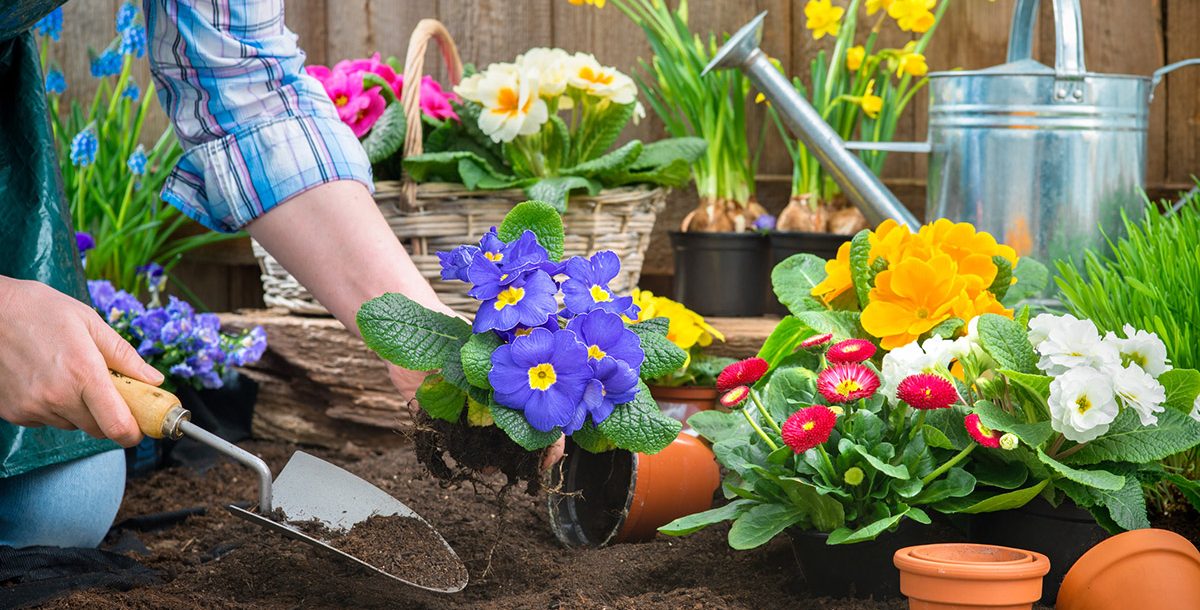Every spring, when the weather warms up, many of us find ourselves itching to get outside to tend to our yards. However, it is important not to overlook yard work safety.
Yard work can be rewarding. It’s good exercise and it can make you feel good about your home and your abilities. But it can also be dangerous if you’re not careful.
So, before you head out to tackle those weeds, take a look at these yard work safety tips.
1. Wear protective gear.
Before you even start doing yard work, you need to make sure you’re dressed appropriately.
Long pants and long sleeves will protect your legs and arms from objects flying out from under lawnmowers, bug bites and more. Wear closed-toed shoes to protect your feet. Sunglasses can protect your eyes from the sun. Also, don’t forget the sunscreen. Earplugs can help with hearing protection if you’re handling loud equipment. Gloves will protect your hands from everything from poison ivy to blisters from the repetitive use of rakes and shovels.
It’s also important to consider wearing safety gear. Safety goggles can protect your eyes. Did you know that more than half of all eye injuries occur while people are doing everyday household chores? And if you’re handling chemicals, like fertilizers or weed killers, wear gloves and a mask or respirator.
2. Lift items carefully.
You may know the old saying, “Use your legs, not your back,” when lifting heavy objects. This applies to yard work, too. If an object, like a rock or bag of soil, is too heavy, be sure to get help or use a wheelbarrow.
3. Take breaks and stay hydrated.
Listen to your body. If you feel too tired or something feels too painful, don’t do it. Take breaks throughout the day, about every 30 minutes or so, to drink plenty of water and rest. Even when it’s not hot outside, you can sweat. You need to replenish the fluids that you lose.
4. Watch out for children and pets.
Be especially careful if you have kids or pets around. Even better, keep them inside. Something could fall on them, or they could get hurt on some equipment.
5. Know how to operate machinery properly.
From your gas-powered or riding mower to your chainsaw as well as your power tools, it’s important to make sure you know how to operate any equipment before turning it on. Thousands of people end up in emergency rooms each year because of accidents with yard and garden tools. Read the manual and wear the appropriate protective gear.
6. Remain aware of wildlife.
Snakes can be hiding anywhere — from tall weeds to a box in your garage — so always be on alert. If you’re bitten by a poisonous snake or one you think might be poisonous, call 911 immediately. It’s also important to take care to avoid bug bites. Insects like mosquitoes are a nuisance, but they also carry disease. Wear insect repellant when you work outside. Disinfect any bug bites when you come inside, and see your doctor if you develop severe symptoms
7. Understand which “weeds” are toxic.
Make sure you know what toxic plants – like poison ivy, poison oak and sumac – look like. Don’t just grab weeds you can’t identify with your bare hands. Use thick gloves and sharp tools to remove them
8. Practice safe ladder skills.
If you must use a ladder, make sure it’s on a level surface. And keep it on the ground. Never climb all the way to the top. Also, don’t attempt to use tools like pressure washers while you’re on a ladder.
9. Dig with caution.
Check with your local utility companies before you dig a hole or ditch. You don’t want to hit a power, gas or sewer line. The results could be hazardous. It could also end up costing you big money.
10. Be careful on slick or uneven surfaces.
If it has rained recently, be extra careful. Surfaces like wet leaves or mud can be extra slick and cause you to fall. Move with caution and find a good pair of work boots or shoes designed to be slip-proof.
No matter how many yard work safety tips you follow, there’s always still the chance you can get injured. If that happens, we are here.
Learn more about the urgent care services and emergency care services we provide at Bon Secours.





